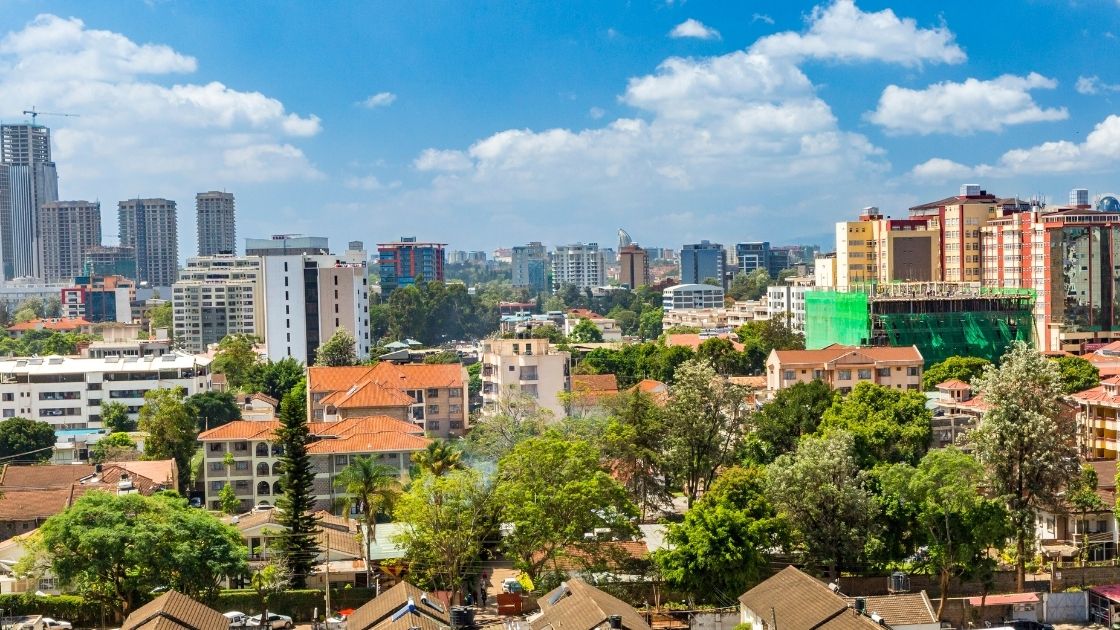Navigating the decision between leasing and buying commercial property in Kenya is a pivotal choice for businesses of all sizes. Whether you’re a start-up looking to establish a physical presence or an established enterprise planning to expand, understanding the pros and cons of both options is essential. This guide will provide a comprehensive overview of the factors to consider, including market trends, financial implications, and legal considerations, to help you make an informed decision.
Understanding the Kenyan Commercial Property Market
The Kenyan commercial property market has undergone significant changes over the past decade, shaped by urbanization, economic growth, and infrastructure developments. Nairobi remains the central hub for commercial real estate, with areas like Westlands, Upper Hill, and Kilimani experiencing a surge in demand. However, secondary cities such as Mombasa, Kisumu, and Nakuru are also seeing increased activity as businesses seek more affordable and accessible locations.
As of 2024, the market shows a mixed outlook. High demand for premium office spaces and retail outlets has kept prices competitive in prime locations. However, there’s an oversupply in some areas, leading to softened rental yields and offering potential opportunities for buyers looking to negotiate favorable deals. These market dynamics play a crucial role in the lease vs. buy decision.
Financial Implications of Leasing Commercial Property
Leasing commercial property offers several financial advantages, particularly for businesses that prioritize flexibility and lower upfront costs. The primary benefit of leasing is the ability to conserve capital, as the initial costs are typically limited to a security deposit and a few months of rent in advance. This allows businesses to allocate more resources toward operations, marketing, or growth.
Leasing also offers tax benefits, as rental payments are often deductible as a business expense, reducing the overall tax burden. Additionally, leasing mitigates the risk of property depreciation, as businesses are not responsible for the long-term maintenance or value retention of the property. However, it’s important to consider that lease payments can escalate over time, especially in high-demand areas, and businesses may face challenges during lease renewal negotiations.
Financial Implications of Buying Commercial Property
Buying commercial property in Kenya is a significant investment that can offer long-term financial benefits. Ownership provides the potential for capital appreciation, particularly in prime locations where property values are expected to rise over time. This can be a substantial financial gain if the property is sold at a profit in the future.
Moreover, owning property eliminates the uncertainty of fluctuating rental rates, allowing businesses to fix their occupancy costs. Property owners can also benefit from rental income by leasing out portions of the property to other businesses. However, buying property requires a substantial initial investment, including a down payment, legal fees, and ongoing maintenance costs. This can strain a business’s cash flow, particularly for smaller companies or start-ups.
Legal Considerations for Leasing Commercial Property
When leasing commercial property in Kenya, it’s crucial to thoroughly understand the terms of the lease agreement. Lease agreements can vary significantly, and it’s essential to scrutinize clauses related to rent escalation, maintenance responsibilities, and termination conditions. Most leases in Kenya are on a long-term basis, ranging from three to five years, but shorter terms are available depending on the landlord’s flexibility.
Kenyan law requires that all leases longer than three years be registered at the Ministry of Lands, which provides legal protection for both parties. Businesses should also be aware of zoning regulations, as certain areas are designated for specific types of commercial activities. Consulting with a legal expert to ensure that the lease agreement is fair and compliant with Kenyan law is highly recommended.
Legal Considerations for Buying Commercial Property
Purchasing commercial property in Kenya involves navigating a complex legal landscape. The first step is to conduct thorough due diligence, including verifying the property’s title deed, confirming the seller’s ownership, and ensuring there are no encumbrances or disputes. Engaging a qualified conveyancing lawyer is crucial to avoid potential legal pitfalls.
Buyers must also be aware of land rates and property taxes, which are payable annually to the local county government. Failure to comply with these obligations can result in penalties or legal action. Additionally, the buyer must ensure that the property’s zoning aligns with their intended use. The process of transferring ownership involves several legal steps, including drafting a sale agreement, obtaining consent from the Land Control Board (for agricultural land), and registering the transfer at the Ministry of Lands.
Market Trends: Leasing vs. Buying in Kenya
Current market trends in Kenya reflect a growing preference for leasing among businesses, especially in the retail and office sectors. This trend is driven by the need for flexibility in a dynamic economic environment, where businesses are hesitant to commit to long-term investments. The rise of co-working spaces and serviced offices also reflects this shift, as businesses opt for short-term leases that offer plug-and-play solutions without the burden of property management.
However, the demand for buying commercial property remains strong among established businesses and investors looking for long-term value appreciation. The allure of owning property in strategic locations, particularly in Nairobi’s central business district and upcoming urban areas, continues to attract buyers despite the high capital requirements.
Pros and Cons of Leasing Commercial Property
Leasing offers several advantages, including flexibility, lower upfront costs, and reduced responsibility for property maintenance. Businesses can easily relocate at the end of a lease term if they outgrow the space or if market conditions change. However, the downsides include potential rent increases, lack of control over property modifications, and the absence of equity accumulation.
Leasing is ideal for businesses in volatile industries or those with uncertain growth prospects. It also suits companies that prefer to invest their capital in core business activities rather than tying it up in real estate. However, the lack of ownership means businesses miss out on the potential benefits of property appreciation and rental income.
Pros and Cons of Buying Commercial Property
Owning commercial property offers stability and the potential for long-term financial gains. Businesses can customize the property to suit their specific needs and are not subject to the uncertainties of lease renewals or rent hikes. Additionally, property ownership can enhance a business’s balance sheet and provide a sense of permanence and credibility.
On the downside, buying property requires significant upfront capital and exposes the business to market risks, such as property value depreciation. Owners are also responsible for ongoing maintenance, taxes, and compliance with zoning laws. For businesses with stable cash flows and long-term plans, buying can be a strategic investment, but it’s not without its challenges.
Factors to Consider When Deciding
When deciding between leasing and buying commercial property in Kenya, businesses should consider several factors:
- Capital Availability: Does the business have the financial resources to make a significant upfront investment, or would conserving capital for operations be more beneficial?
- Growth Projections: Is the business expected to expand rapidly, potentially requiring more space in the near future?
- Market Conditions: Are property values expected to appreciate, making buying a more attractive option?
- Flexibility Needs: Does the business require the ability to relocate or adjust its space requirements easily?
- Tax Implications: How will leasing or buying impact the business’s tax situation?
Each business’s circumstances are unique, and what works for one may not work for another. A thorough assessment of these factors, combined with professional advice, will help in making the right choice.
Conclusion: Making the Right Decision
Leasing and buying commercial property in Kenya both have their merits, and the right choice depends on the specific needs and circumstances of the business. Leasing offers flexibility and lower upfront costs, making it ideal for businesses in uncertain markets or those that prioritize cash flow. On the other hand, buying provides stability, control, and the potential for long-term financial gains, but requires a significant investment and a commitment to managing the property.
Ultimately, businesses should weigh the financial, operational, and legal implications of both options before making a decision. Engaging with real estate professionals, financial advisors, and legal experts is crucial in navigating the complexities of the Kenyan commercial property market and ensuring that the chosen path aligns with the business’s long-term goals.





